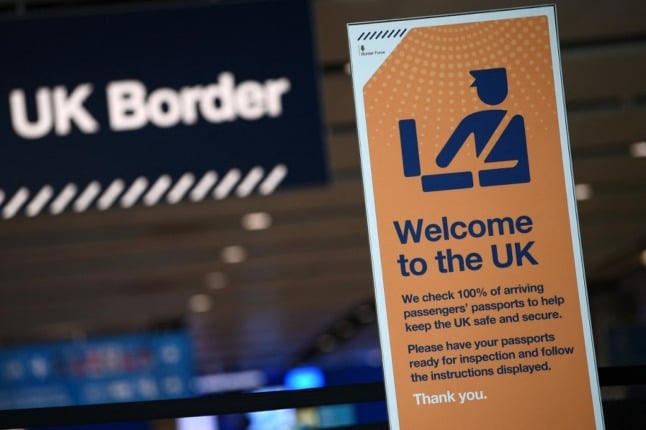BANKS
Brits in Italy: Are you affected by the closures of UK bank accounts?
As the end of the Brexit transition period approaches, some UK banks are closing down accounts for their British customers who live in the EU while others are withdrawing services. Are you affected?

For members
BREXIT
Will Brits in Italy face travel problems under new EES passport system?
The EU's new Entry & Exit System (EES) of enhanced passport controls is due to come into force later this year, but will this create more headaches for non-EU nationals who need to prove their Italian residency rights?

Currently scheduled to start in autumn 2024 (unless it’s delayed again, which is possible) the EU’s new Entry & Exit System is an enhanced passport check at external EU borders.
You can find a full explanation of the new system and what it means for travellers HERE.
Those crossing an external EU or Schengen border for the first time will be required to complete EES ‘pre-registration’ formalities, including facial scan and fingerprinting.
Several groups are exempt from EES, and one of them is non-EU nationals who have a residency permit or long-stay visa for an EU country.
A European Commission spokesman told The Local: “Non-EU citizens residing in the EU are not in the scope of the EES and will not be subject to pre-enrollment of data in the EES via self-service systems. The use of automation remains under the responsibility of the Member States and its availability in border crossing points is not mandatory.
“When crossing the borders, holders of EU residence permits should be able to present to the border authorities their valid travel documents and residence permits.”
READ ALSO: What will EES passport system mean for foreigners living in Europe?
But there have understandably been questions about how this exemption will work in practice.
Most airports, ports or terminals have two passport queues – EU and non-EU. It remains unclear whether the non-EU queue will now have a separate section for those who are exempt from EES.
It appears that exempt groups will not be able to use the automated passport scanners – since those cannot scan additional documents like residency permits – but should instead use manned passport booths.
What does this mean for travel between Italy and the UK?
It seems that nothing will therefore change for those who already have to show their Italian residency documents along with their passport when travelling to and from the UK (or another non-EU country) in order to avoid having their passport incorrectly stamped.
UK citizens who were legally resident in Italy before the end of the Brexit transition period are in a somewhat unusual position, as Italy is one of a handful of “declaratory” countries in the EU where getting a post-Brexit residency card (Italy’s is known as the ‘carta di soggiorno‘) was optional, rather than compulsory.
The British government has long recommended that British nationals who were resident in Italy before Brexit should obtain the card as it’s the easiest way to prove residency rights and avoid delays at the border.
In practice, many of Italy’s British residents have since found that the post-Brexit residency card is also necessary in order to complete various bureaucratic procedures within Italy.
READ ALSO: EES: Could the launch of Europe’s new border system be delayed again?
But will the EES system mean that the card now becomes a de facto requirement when travelling between Italy and the UK?
The British government has not issued any updated guidance on the matter in light of the introduction of EES, and the British Embassy in Rome did not immediately respond to a request for comment from The Local.
Although EES does not change any rules relating to residency or travel, it seems likely that it will be more hassle to travel without a ‘carta di soggiorno’ than it is now.
As always, our advice is that getting the card, if you haven’t already, will probably save you a considerable amount of time and trouble, both within Italy and when travelling.
You can find our full Q&A on EES HERE.

 Please whitelist us to continue reading.
Please whitelist us to continue reading.
Member comments